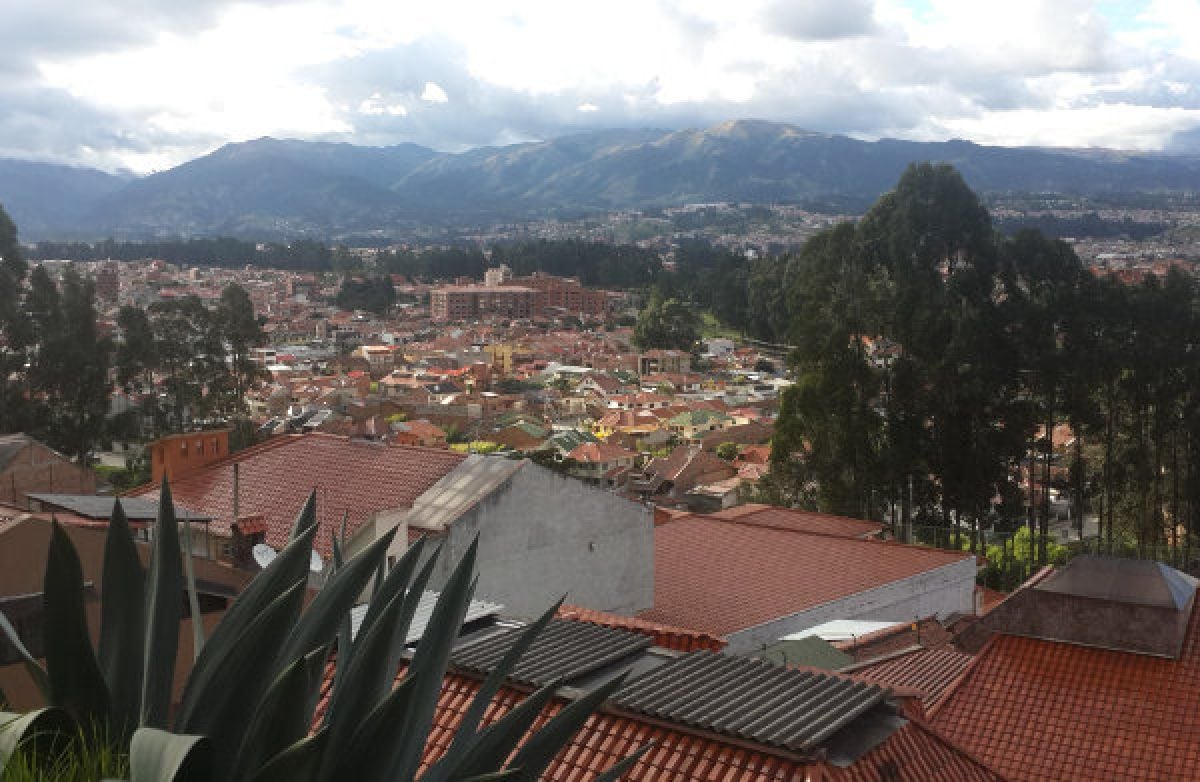
Where are you from, Mike, and what are you doing nowadays?
I am a retired Internet Engineer. I moved from Canada directly to Cuenca from Qualicum Beach, BC. I moved here without ever having visited previously. It was easy for me to do this because I was coming solely myself and my cat (i.e., no family and no worries about selling property before leaving home).
Why did you choose to move to Ecuador?
I used to spend a great deal of time when I was younger living in Mexico with my parents. I have always liked the Spanish language and the people. So this was one of the reasons. Another was the great climate in Cuenca. And of course, because the cost of living is less than in Canada, it makes my minimalist financial income stretch further. So, even with the monetary rate of conversion it is still less expensive to live in Ecuador. If the conversion rate continues to fall below 1.33, the financial advantage is obviously going to be less.
As a Canadian national, what were the procedures you had to follow to move there?

There wasn't any requirements out of the ordinary for me to move to Cuenca. I did have to take out an Investment Visa as I was not ready to collect my full pension. I was concerned about whether I could collect full OAS and CPP if I was no longer living in Canada. But I discovered that there would not be any problems and there is no need to return to Canada as suggested on the Canadian government website regarding OAS.
Ecuador has a tax agreement with Canada so that the maximum Canada can withhold is 15% on income greater than $12,000 per annum. Without this tax agreement they would withhold 25%. However, I was told by the OAS people that they will not withhold any tax unless asked to do so. One other piece of advice is to acquire at least two copies of your full length birth certificate. You will need one when you apply for your cedula (or at least they will take a copy of it). And if you apply for a driver's license or for citizenship (as I am going to do), I have heard that it is needed for that as well.
How long have you been in the country?
I will have been in the Cuenca for 2 years as of May 14, 2016.
What has attracted you to Cuenca?
Before coming to Cuenca, I had heard that it was easier to integrate. The climate also appealed to me more than the humid coastal areas.
What has surprised you the most at your arrival?
On the day of my arrival, it was very hot and I was concerned for the welfare of my cat. It was so noisy and the pollution was more noticeable due to the heat. I almost felt like turning around and going back home. But after getting established in my temporary lodging and taking the time to walk around the city a little, my perceptions quickly changed to the positive.
Was it difficult to find accommodation there? What are the types of accommodation which are available there?
Accommodation was not too hard to find. But I was quite limited as to where I could stay because I had my cat with me. I did manage to find a nice comfortable and inexpensive place to stay. There are many different types of accommodation available in Cuenca. There are hostels and a number of B&B's which tend to be the less expensive route. And then, there are quite a number of hotels that are more costly (most of which do not accept animals).
How do you find the Ecuadorian lifestyle?

The Ecuadorian lifestyle is quite easy-going which is typical of my lifestyle. The people are very friendly. I have been accepted into my Ecuadorian girlfriend's family as if I have always been a member. They are very courteous and especially helpful in accepting my "spanglish".
However, they have one disturbing behavior. They think nothing of driving fast, passing very close to other cars and tail-gating with their children in insecure conditions (i.e., no car seat, no seat belts). They seem to think that nothing bad will ever happen to them. Also, the police do not enforce any kind of limitation on this kind of behavior as is done in Canada. And of course, there is the attitude that pedestrians should not exist (i.e., they should not be walking anywhere that vehicular traffic exists).
There are many drivers that will keep driving straight towards you as you are crossing a road. "Get out of the way!" They also do not honor crosswalks (nor do some of the police). Many have no patience (i.e., constantly honking their car horns) mostly at other vehicles. As soon as that light changes, you best not hesitate any more than 2 seconds unless you wish to hear a horn blast. And if you are waiting to cross the street they are likely not going to stop and let you cross. You have to be just as aggressive as a pedestrian and force your way across and hope they will stop.
Barking dogs are many. Most people have one or more dogs even if they cannot afford to properly take care of them. They have them, in most cases, for the purpose of dissuading ladrones (robbers) from entering their houses. In my time of living here, I have seen very little need for such a deterrent. But the dogs are not typically making all that noise because of ladrones. Most of the barking is because of their territorial nature to other dogs and/or non-threatening people walking in the streets. The number of dogs freely roaming the streets seems to be diminishing.
If noise laws exist, they are not enforced. For example, the locals think nothing of setting off fireworks or playing loud music in the middle of the night. Fortunately, these kinds of occurrences are infrequent occurring mostly around special events.
And then, there is the car alarm. Car alarms can be heard on almost any day and/or night. It seems they don't care if they cause noise or don't understand the technology. They will happily open their car doors before disabling the alarm and then leave the alarm sounding for several minutes before turning it off. There are also many alarm systems that are way too sensitive and go off with slight vibrations of some passing vehicle.
Have you been able to adapt yourself to the country and to its society?
I have somewhat adapted, but every once in a while I catch myself getting irritated by some inconsiderate person or by some barking dog.
What does your every day life look like in Cuenca?
I am a technology-nut, so I spend a lot of time using my computer. But I do get out and get exercise by walking long distances and visiting the few friends I have. My girlfriend involves me with her family and we visit restaurants and other forms of entertainment when we can afford to or when the mood strikes us.
Any particular experience in the country you would like to share with us?
One thing I have noticed is that the parks here have all kinds of freely available exercise equipment that is frequently used (especially in the evening). And there are many health-conscious people out riding bikes or jogging. For the most part, they seem to be a happy people.

What is your opinion on the cost of living in Ecuador? Is it easy for an expat to live there?
The cost of living is certainly less than it is in Canada, even considering the cost of monetary exchange. And yes, it is quite easy for an expat to live in Ecuador.
What do you like the most about the country?
What I like most is the climate and the friendliness of the people.
Your favorite local dishes?
I can't say as I have any favorite dishes. The food is good, but I have had better.
What do you miss the most about your home country?
I miss the lack of noise.
Would you like to give any advice to soon-to-be expatriates in Ecuador?
Only consider Cuenca if you can tolerate the inconveniences I have mentioned. There could be other parts of the country that are better but I am not aware of them.
What are your plans for the future?
In the short term (in 2017) I will make application for residency. And hopefully, financials willing, we will do some traveling. But beyond that, the future is unknown. I can't say what I will or won't do.



















